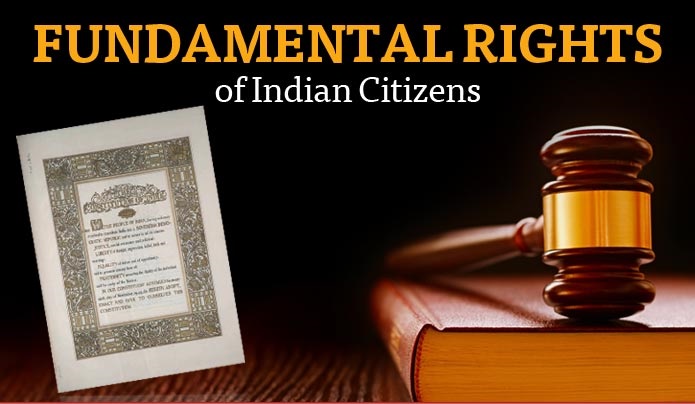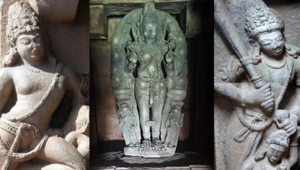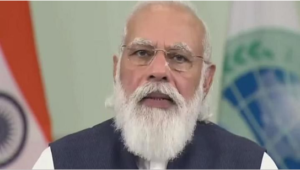
Citizenship at the Commencement of the Constitution in India
CITIZENSHIP
People of any country in the world are classified into the following two types:
- Citizens
- Aliens (foreigners)
The dictionary meaning of a citizen is a native or naturalized member of a state or other political community. The citizenship is a state of being a citizen of a particular social, political, or national community.
While citizens of a country enjoy all the civil and political rights in the country, aliens do not enjoy any of these rights. However in India, certain fundamental rights are applicable to both citizens and aliens. Rights available to both citizens and aliens are –
- Equality before law (Article 14)
- Protection in respect of conviction for offences (Article 20)
- Right to life and personal liberty (Article 21)
- Right to Education (Article 21A)
- Protection against arrest and detention in certain cases (Article 22)
- Right against Exploitation (Articles 23 and 24)
- Right to Freedom of Religion (Articles 25 to 28)
Fundamental Rights that are available to citizens only are
- Right against discrimination (Article 15)
- Right against discrimination in matters of public employment (Article 16)
- Six freedoms guaranteed under Article 19
- Cultural and Educational Rights (Articles 29 and 30)
Apart from the above mentioned fundamental rights, the following rights are available to only citizens
- Eligibility for certain offices, such as those of the President [Art. 58(1)(a)]; Judge of a Supreme court [Art. 124(3)] or of a High Court [Art. 217(2)]; Attorney General[Art. 76(2)]; Governor of state [Art. 157]; Advocate General[Art. 165].
- The right of suffrage for election to the House of the People (of the Union) and the Legislative Assembly of every state[Art. 326] and the right to become a member of Parliament[Art. 84] and of the Legislature of a state[Article 191(d)] are also confined to citizens.
Aliens are further classifies into enemy aliens and friendly aliens depending on the relationship between India and the country. An alien enemy includes not only subjects of a State at war with India but also Indian citizens who voluntarily reside in or trade with such a state. Enemy aliens are not entitled to the benefit of the procedural provisions in CIs. (1)-(2) of Article.22 relating to arrest and detention.
The Constitution of India provides for single citizenship i.e., Indian citizenship. Part II, Articles 5 to 11 deal with the provisions related to the Constitution. The Constitution, however, did not intend to lay down a permanent are comprehensive law relating to citizenship in India. It simply described the classes of persons who would be deemed to be the citizens of India at the Date of the commencement of the Constitution and left the entire law of citizenship to be regulated by some future law made by Parliament. In exercise of this power, Parliament has enacted the Citizenship Act 1955, making elaborate provisions for the acquisition and termination of citizenship of citizenship, subsequent to the commencement of the constitution the provisions of this Act are to be read with the provisions of part II of the Constitution in order to get a complete picture of the law of Indian citizenship.
The provisions related to citizenship in the Constitution are:
Article 5: Citizenship at the commencement of the Constitution
At the commencement of this Constitution, every person who has his domicile in the territory of India and –
- who was born in the territory of India;
- or either of whose parents was born in the territory of India;
- or who has been ordinarily resident in the territory of India for not less than five years immediately preceding such commencement, shall be a citizen of India.
Notwithstanding anything in article 5, a person who has migrated to the territory of India from the territory now included in Pakistan shall be deemed to be a citizen of India at the commencement of this Constitution if- he or either of his parents or any of his grand-parents was born in India as defined in the Government of India Act, 1935 (as originally enacted); and
- in the case where such person has so migrated before the nineteenth day of July, 1948, he has been ordinarily resident in the territory of India since the date of his migration, or
- in the case where such person has so migrated on or after the nineteenth day of July, 1948, he has been registered as a citizen of India by an officer appointed in that behalf by the Government of the Dominion of India on an application made by him there for to such officer before the commencement of this Constitution in the form and manner prescribed by that Government: Provided that no person shall be so registered unless he has been resident in the territory of India for at least six months immediately preceding the date of his application.
Article 7: Rights of citizenship of certain migrants to Pakistan
Notwithstanding anything in articles 5 and 6, a person who has after the first day of March, 1947, migrated from the territory of India to the territory now included in Pakistan shall not be deemed to be a citizen of India: Provided that nothing in this article shall apply to a person who, after having so migrated to the territory now included in Pakistan, has returned to the territory of India under a permit for resettlement or permanent return issued by or under the authority of any law and every such person shall for the purposes of clause (b) of article 6 be deemed to have migrated to the territory of India after the nineteenth day of July, 1948.
Article 8: Rights of citizenship of certain persons of Indian origin residing outside India Notwithstanding anything in article 5, any person who or either of whose parents or any of whose grand-parents was born in India as defined in the Government of India Act, 1935 (as originally enacted), and who is ordinarily residing in any country outside India as so defined shall be deemed to be a citizen of India if he has been registered as a citizen of India by the diplomatic or consular representative of India in the country where he is for the time being residing on an application made by him therefore to such diplomatic or consular representative, whether before or after the commencement of this Constitution, in the form and manner prescribed by the Government of the Dominion of India or the Government of India.
Article 9: Persons voluntarily acquiring citizenship of a foreign State not to be citizens
No person shall be a citizen of India by virtue of article 5, or be deemed to be a citizen of India by virtue of article 6 or article 8, if he has voluntarily acquired the citizenship of any foreign State.
Article 10: Continuance of the rights of citizenship
Every person who is or is deemed to be a citizen of India under any of the foregoing provisions of this Part shall, subject to the provisions of any law that may be made by Parliament, continue to be such citizen.
Article 11: Parliament to regulate the right of citizenship by law
Nothing in the foregoing provisions of this Part shall derogate from the power of Parliament to make any provision with respect to the acquisition and termination of citizenship and all other matters relating to citizenship.
The various modes of acquisition of citizenship prescribed by the Citizenship Act 1955 are as follows:
(a) Citizenship by birth. Every person born in India on or after January 26, 1950, shall be a citizen of India by birth.
(b) Citizenship by descent. Broadly speaking, a person born outside India on or after January 26, 1950, shall be a citizen of India by descent, if either of his parents is a citizen of India at the time of the person’s birth.
(c) Citizenship by registration. Several classes of persons (who have not otherwise acquired Indian citizenship) can acquire Indian citizenship by registering themselves to that effect before the prescribed authority, e.g., persons of Indian origin who are ordinarily resident in India and have been so resident for five years immediately before making the application for registration ; persons who are married to citizens of India.
(d) Citizenship by naturalization. A foreigner can acquire Indian citizenship, on application for naturalization to the Government of India.
(e) Citizenship by incorporation of territory. If any new territory becomes a part of India, the Government of India shall specify the persons of that territory who shall be the citizens of India.
Loss of Indian citizenship
The Citizenship Act, 1955, also lays down how the citizenship of India may be lost,—whether it was acquired under the Citizenship Act, 1955, or prior to it—under the provisions of the Constitution (i.e., under Arts. 5-8). It may happen in any of the three ways—renunciation, termination and deprivation.
(a) Renunciation is a voluntary act by which a person holding the citizenship of India as well as that of another country may abjure one of them.
(b) Termination shall take place by operation of law as soon as a citizen of India voluntarily acquires the citizenship of another country.
(c) Deprivation is a compulsory termination of the citizenship of India, by an order of the Government of India, if it is satisfied as to the happening of certain contingencies, e.g., that Indian citizenship had been acquired by a person by fraud, or that he has shown himself to be disloyal or disaffected the Constitution of India.












